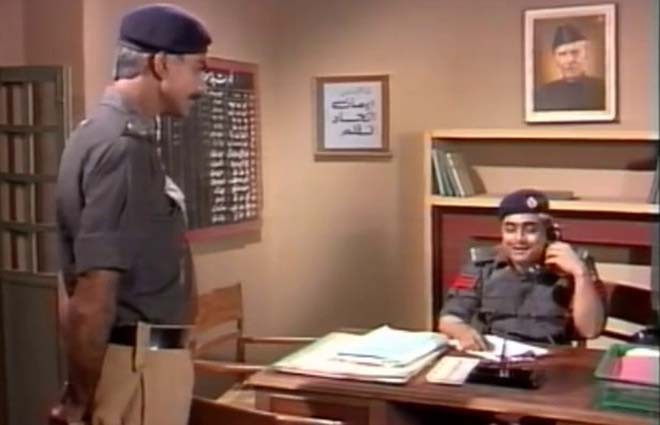
In mainstream media extrajudicial killings and "encounter specialists" are praised and glorified

Both before and after his death, Chaudhry Aslam was revered as a hero. His claim to fame was that he was "Karachi’s greatest protector". Aslam is also remembered as an "encounter specialist" -- a term reserved for a specific genre of policeman who overrides the justice system and "take care" of criminals without having to take them to court. SSP Rao Anwar, who is currently at large and wanted for extrajudicial killing of Naqeebullah Mehsud, has also been known as an "encounter specialist" for quite some time now.
Some regard deaths by "encounter specialists" as necessary given that such powerful criminals often weasel their way out of courts and jails. But the fact is that such killings are extrajudicial -- and illegal.
In mainstream media and pop culture, however, extrajudicial killings and "encounter specialists" are praised and glorified as ways and means of providing swift justice to victims and their families, and of restoring order in the society.
One of the most famous Pakistani dramas about policing systems, Dhuwan, is based on the premise of five friends, some of whom were police officers, getting together to fight crime extra-judicially. The drama -- which ends with the police and justice system failing completely, and forcing the female lead to avenge the death of friends by shooting down the villain as he tries to escape the country -- was meant to inspire young Pakistanis to join the police force. Ironically, it did. Various blogs strewn on the internet talk about how the drama made them respect the police.
It appears that Pakistanis have a problem with corrupt and inefficient police officers, but not with those that take pride in being "encounter specialists".
This selective call for improved policing can be seen in other dramas as well. Dramas from the 1980s and 90s about the police, including Hamsafar (no, not the one with Fawad Khan and Mahira), Waapsi, and Andhera Ujala all focus on corruption and lack of efficiency, completely ignoring the issue of police brutality and staged encounters.
This is despite the fact that it was in the early 1990s that the idea of encounter specialists really took root within the Pakistani police force.
Read also: Almost a clean slate
There is one film, however, that not only focuses on staged encounters and extrajudicial killings, but is actually premised on them. Unfortunately, Jungal Ka Qanoon, with its all-star cast of Sultan Rahi, Nadeem, Saima and Reema, to name just a few, is confused about the problems of the country’s policing system.
It begins with the usual tropes: an honest man from a decent family is framed for a crime he didn’t commit; the policemen are in cahoots with the bad guys because their oft-mentioned zameer has been bought. Enter honest policeman who wants to fight the Jungal Ka Qanoon and clean the system.
But extrajudicial killings aren’t really perceived as ‘dirty’ in the film. The film displays two police encounters. The first "nakli police muqabala" is when corrupt police officials have just arrested two good guys and are about to shoot them in a fake encounter. Sultan Rahi saves the day by shooting everyone dead, (everyone but the two heroes, of course). The few good policemen join in on the fun and help kill the baddies and the bad policemen.
In the second instance, which is also the last scene of the movie, and by far the most confusing, we find ourselves outside the court from where the now-convicted villain is being taken to prison. His gang members come to rescue him with Kalashnikovs, but before they can, Sultan Rahi appears, again.
"Kalashnikov de zor tay hun qanoon badalnay da zamana beet chukya wa," [No longer are Kalashnikovs more powerful than the law] shouts Sultan Rahi.
You think, yes, let’s end vigilante justice, let’s end, or at least curb, police encounters. And then Rahi, the honest policeman, Saima, and Reema, all pick up their Kalashnikovs and shoot everyone dead.
The movie, it appears, wants to draw the line between good and evil, corruption and honesty, notions of pro- and anti-Pakistani, but killing a criminal extrajudicially is not considered evil or dishonest. The movie ends on a happy note because all the criminals are dead, who cares how they died, right? One of the good policemen holds a pen in his hand and declares: "History is witness to the fact that if justice system fails, people will be forced to take justice in their own hands… so arm your masses with pens instead of guns," i.e., it’s okay to take the law in your hands and kill bad guys, as long as there’s a gun around?